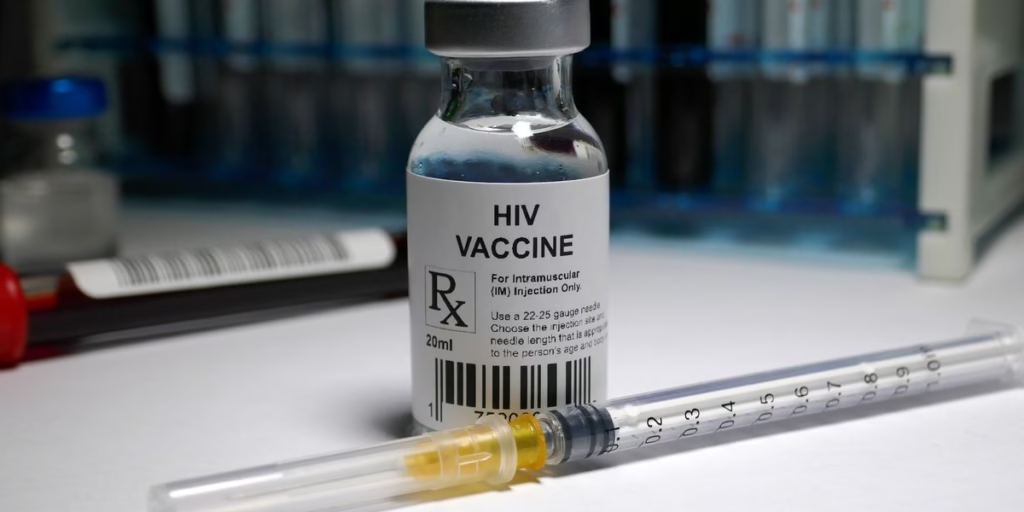South African lab technician Nozipho Mlotshwa and her team were on the brink of groundbreaking progress in developing an HIV vaccine when their work was abruptly halted. The order to stop came from USAID, a major funder of the project, as part of U.S. President Donald Trump’s broader cuts to foreign aid. This decision has left promising research in limbo, raising concerns about the future of HIV vaccine development in Africa.
The Promise of the BRILLIANT Project
The BRILLIANT project, a South African-led initiative, aimed to develop an HIV vaccine using mRNA technology, similar to that used in some COVID-19 vaccines. Funded by a $45 million USAID grant, the project had shown promising results in early trials.
Nozipho Mlotshwa, 32, and her team at the University of the Witwatersrand in Johannesburg had successfully produced an immune response in rabbits using their first round of vaccines. After tweaking the formula, they sent four new versions for pre-clinical testing.
“This was very exciting. We were getting quite good results,” Mlotshwa told Reuters. However, the animal blood samples containing these results now sit untouched in a freezer, as the project has been frozen indefinitely.
The Impact of USAID Funding Cuts
The halt to the BRILLIANT project is part of a broader freeze on foreign aid initiated by President Trump. This decision has also affected other critical research efforts, including trials of an earlier HIV vaccine candidate set to be tested in South Africa, Kenya, and Uganda.
Nigel Garrett, Chief Scientific Officer at the Desmond Tutu Health Foundation, a partner in the project, expressed his frustration: “It feels like you’re building something and you could really make a huge difference. And then it’s wiped away.”
For more information on HIV vaccine research, visit the World Health Organization’s HIV page.
Why an HIV Vaccine is the “Holy Grail”
HIV’s ability to mutate rapidly has made it one of the most challenging viruses to combat. Despite decades of research, a vaccine remains elusive. The BRILLIANT project was unique in its Africa-led approach, aiming to build local capacity for vaccine production.
Patrick Arbuthnot, director of the research unit, described the project as “the holy grail of the field.” The team had been working with genetic sequences from South African patients whose bodies produce rare antibodies that neutralize HIV, offering a potential pathway to a vaccine.
Broader Implications of Funding Cuts
The USAID funding freeze has had far-reaching consequences, affecting not only HIV research but also other critical areas such as food security, disaster response, and public health. In South Africa, which has the world’s largest population of people living with HIV (over 8 million), the cuts are particularly devastating.
Ntobeko Ntusi, CEO of the South African Medical Research Council, emphasized the global significance of this research: “Most of the landmark and groundbreaking studies have been conducted in this country. But these have been good for the whole world.”
For updates on global health initiatives, check out UNAIDS’ official website.
FAQs
1. What is the BRILLIANT project?
The BRILLIANT project is a South African-led initiative to develop an HIV vaccine using mRNA technology, funded by a $45 million USAID grant.
2. Why was the project halted?
The project was frozen due to USAID funding cuts as part of President Trump’s broader reduction in foreign aid.
3. What were the project’s key achievements?
The team successfully produced an immune response in rabbits and was preparing for human trials before the funding was cut.
4. How does this impact global HIV research?
The halt delays progress toward an HIV vaccine, particularly in Africa, which bears the highest burden of the disease.
Call to Action: Support HIV Research
The suspension of the BRILLIANT project underscores the need for sustained funding and global collaboration in the fight against HIV.
What can you do?
- Advocate for continued funding for HIV research.
- Support organizations working on HIV prevention and treatment.
- Stay informed about global health initiatives.
Share your thoughts on this issue in the comments below or join the conversation on social media using #HIVResearchMatters.



